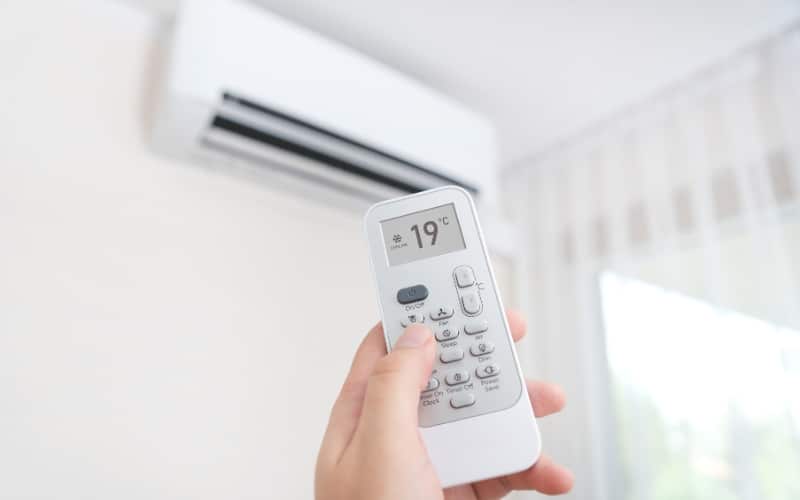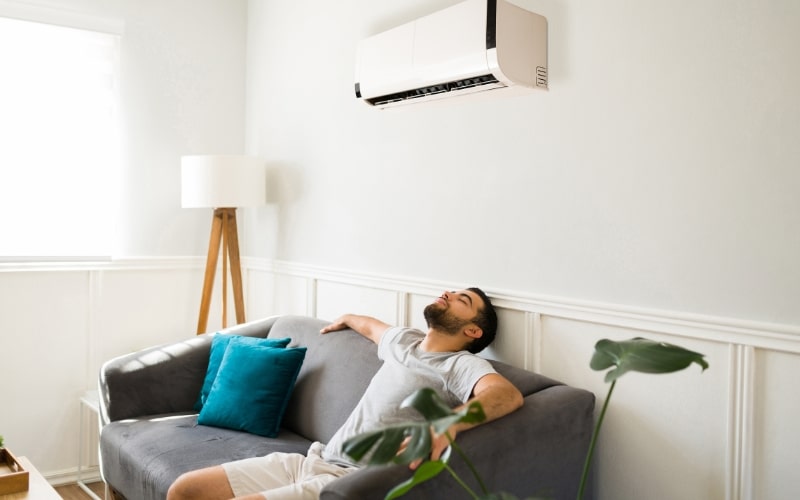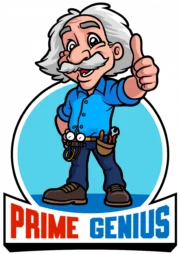When to Turn Off AC: 5 Expert Tips to Save Energy

Table of Contents
Knowing when to turn off AC can make a big difference in your comfort, your utility bills, and the longevity of your cooling system. Many homeowners assume turning the air conditioner off every time they leave is the smartest way to save money. However, HVAC experts, including our team at Prime Genius Heating & Air, say the answer is more nuanced.
In some cases, keeping your AC running (but at a higher temperature) is more efficient. In others, shutting it off makes sense. The key is understanding how your home, your climate, and your system work together.
Why Turning Off the AC Isn’t Always Best
The U.S. Department of Energy reports that air conditioning accounts for about 12% of household electricity use. It is natural to look for ways to cut back. But turning your AC completely off during short absences can sometimes force it to work harder later, which may increase energy use.
Every home is different. Factors like insulation, humidity levels, the efficiency of your unit, and even your power company’s rate structure all affect the best approach.
When You Should Keep the AC Running
1. In Humid Climates
If you live in a humid area, turning your AC off for hours can let moisture build up. Air conditioners remove humidity as they cool. Without this dehumidification, indoor humidity can exceed 60%, creating a breeding ground for mold, mildew, and dust mites.
2. If You Have Pets at Home
Pets are sensitive to heat. Even if you increase the thermostat to 75–78°F while away, you should avoid shutting the system off completely. Prolonged exposure to temperatures above 85°F can be unsafe for animals.
3. During Short Absences
If you are gone for four hours or less, leaving your AC on but set a few degrees higher often uses similar or even less energy than turning it off and restarting it later.
4. With High-Efficiency Systems
Modern high-efficiency heat pumps and mini-split systems often work best when left running. Their variable-speed fans adjust output as needed, operating efficiently at lower speeds.
When It Makes Sense to Turn Off the AC
1. Long Vacations
If you will be away for eight hours or more, especially for several days, shutting the system off (or setting it significantly higher) can reduce costs. In humid climates, consider leaving it on but set to control humidity.
2. In Well-Insulated Homes
If your home is tightly sealed and well-insulated, it can retain cool air longer, allowing you to turn the AC off for extended periods without sacrificing comfort.
3. Using Window or Wall Units
For homes with multiple smaller units, you can shut off cooling in unused rooms while keeping it on in areas that need it.
4. When Taking Advantage of Off-Peak Rates
If your power company offers cheaper rates during certain hours, pre-cooling your home during low-cost times and shutting off the AC during peak pricing can save money, as long as your home holds the cool air well.

Energy-Saving Tips from Prime Genius Heating & Air
Knowing when to turn off AC is just part of the strategy. You can boost comfort and efficiency with these expert-approved methods:
Adjust the Thermostat
For every degree you raise the thermostat above your normal setting, you can save 1–2% on cooling costs. Try increasing from 74°F to 78°F while you are out.
Upgrade to an Energy-Efficient Unit
If your AC is over 10–15 years old, replacing it with an ENERGY STAR® certified model can cut cooling costs by up to 50%.
Weatherize Your Home
Seal gaps around doors, windows, and baseboards to prevent cool air from escaping. Add insulation to improve your home’s ability to maintain a steady temperature.
Maintain Your System
Replace or clean air filters monthly during peak cooling season. Schedule professional maintenance annually to keep your unit running efficiently.
Use Smart Controls
Smart thermostats can learn your schedule and adjust temperatures automatically. Geofencing features can raise the temperature when you leave and cool the home before you return.
Rely on Fans
Ceiling fans use a fraction of the energy that AC systems require and can make rooms feel cooler by several degrees.
Minimize Heat Inside the Home
Avoid using ovens, stovetops, and dryers during the hottest parts of the day. Opt for no-cook meals, grill outdoors, or run heat-producing appliances at night.
Leverage Cooler Nights
When the temperature drops, open windows to let in cooler air and use fans to circulate it. This can reduce the need for AC in the morning hours.
Finding Your Comfort-Efficiency Balance
The decision about when to turn off AC depends on your unique situation, including your climate, home construction, cooling system, and daily routine. In humid regions or homes with pets, keeping the system running at a higher temperature may be best. In dry climates or well-insulated houses, turning it off during long absences can save significantly.
At Prime Genius Heating & Air, we help homeowners strike the perfect balance between comfort and efficiency. Whether you need a system tune-up, a smart thermostat installation, or advice tailored to your home, our team is here to make sure you stay cool without overspending.


